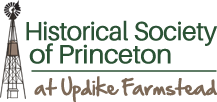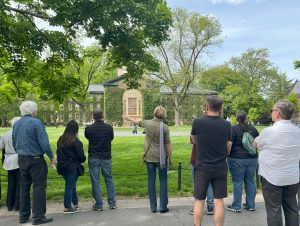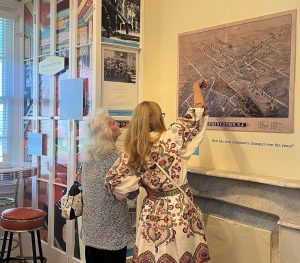The Historical Society of Princeton (HSP) has successfully digitized approximately 300 at-risk audio cassette oral history recordings in HSP’s archival collection, making these resources newly available to researchers, with funding support from the New Jersey Historical Commission. Preservation concerns had previously rendered these cassettes, many of which are almost 50 years old, unplayable and thus inaccessible to HSP patrons.
“Since use accelerates a cassette’s deterioration, the Library of Congress now recommends that audio cassettes and other vintage recordings be played as little as possible in order to maximize their lifespan. Even with such precautions, the average cassette only lasts between 10 to 30 years before it degrades completely. Many of the cassettes that HSP digitized fell far beyond this range, making their immediate preservation a priority,” said Stephanie Schwartz, HSP Curator of Collections and Research.
Funding from the New Jersey Historical Commission, a Department of State, enabled HSP to engage a professional vendor to create high-quality digital files from these delicate recordings. With the tapes digitized, the recordings are now available to researchers and HSP staff for innumerable important and engaging public history uses.
Collections transferred include: 1) interviews conducted by the Princeton History Project, an oral history initiative during the 1970s and 1980s that documented the stories of Princeton residents alive at the turn-of-the-century; 2) interviews conducted by author Jamie Sayen in the 1970s with Albert Einstein’s Princeton friends and colleagues that provide an intimate look at a man with New Jersey connections and worldwide appeal; and 3) oral histories from the residents of Princeton’s historic African-American and Italian-American communities, including interviews conducted by author Kathryn Watterson for her award-winning book “I Hear My People Singing: Voices of African American Princeton,” published by the Princeton University Press in 2017.
“Oral histories are critical resources. They provide records of individuals and perspectives not otherwise represented in our collection or the historical narrative at large. They help us to humanize the study of the past,” said Izzy Kasdin, Executive Director of the Historical Society of Princeton. “We are so pleased to have been able to complete this project, as part of our overall goals to continue to expand the breadth and diversity of history accessible to Princetonians and the research community at large.”
HSP staff are regularly adding new catalog records documenting the digitized interviews to HSP’s online database. Researchers can reach out to HSP’s Collections Department at stephanie@princetonhistory.org for additional assistance.


